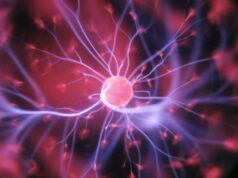PathMaker Neurosystems has announced that it has initiated and successfully enrolled the first patient in its European clinical trial to evaluate MyoRegulator for the non-invasive treatment of spasticity secondary to stroke. The clinical trial is being conducted by France’s prestigious Brain and Spine Institute (Institut du Cerveau et de la Moelle Epinière – ICM) at the Pitié-Salpêtrière Hospital in Paris, France, and is being sponsored by INSERM (Institut National de la Santé et de la Recherche Médicale), France’s public institute for science and technology which operates under the joint authority of the French Ministries of Health and Research.
MyoRegulator is an investigational, first-in-class, non-invasive neuromodulation device based on PathMaker’s proprietary DoubleStim technology, which provides simultaneous non-invasive stimulation at spinal and peripheral sites. MyoRegulator is the first neuromodulation device intended for the treatment of patients suffering from spasticity, a muscle control disorder characterised by tight or stiff muscles and an inability to control those muscles. MyoRegulator was one of the first “breakthrough” medical devices selected for the US Food and Drug Administration’s (US FDA) Expedited Access Pathway (EAP) program and is now in IRB-approved human clinical trials in the USA and in Europe. The landmark trial is designed as a monocentric, randomised, double-blinded, sham-controlled study that will evaluate the performance and safety of the MyoRegulator device in active versus sham treated patients, and represents the first trial evaluating the use of this device in lower limb spasticity.
Jean Charles Lamy, head of the CENIR-PANAM core facility at ICM focused on non-invasive stimulation said, “We are excited to see the MyoRegulator clinical study begin at ICM. For patients experiencing spasticity following stroke, a serious condition that can often inhibit patients from participating in everyday activities, a non-invasive treatment is an appealing alternative to the use of injected botulinum neurotoxins which can be associated with serious adverse effects, painful repeated intramuscular injections and high costs.”









